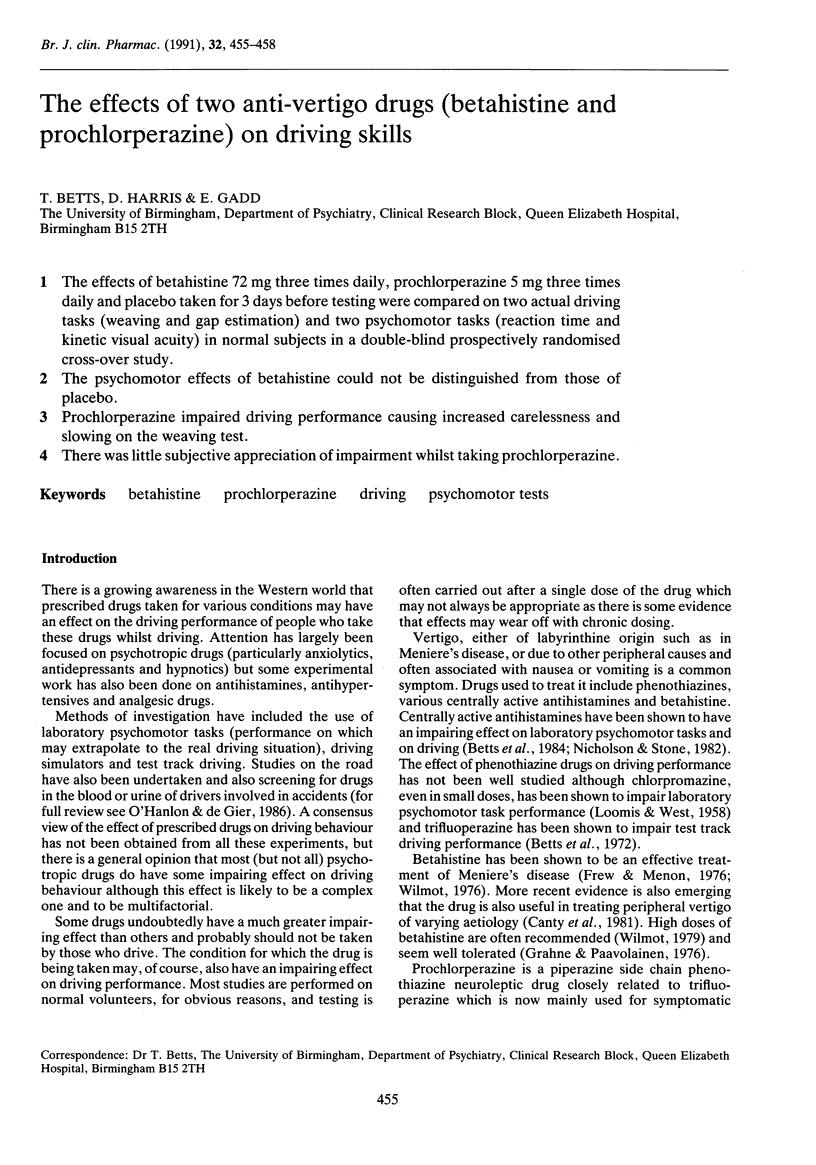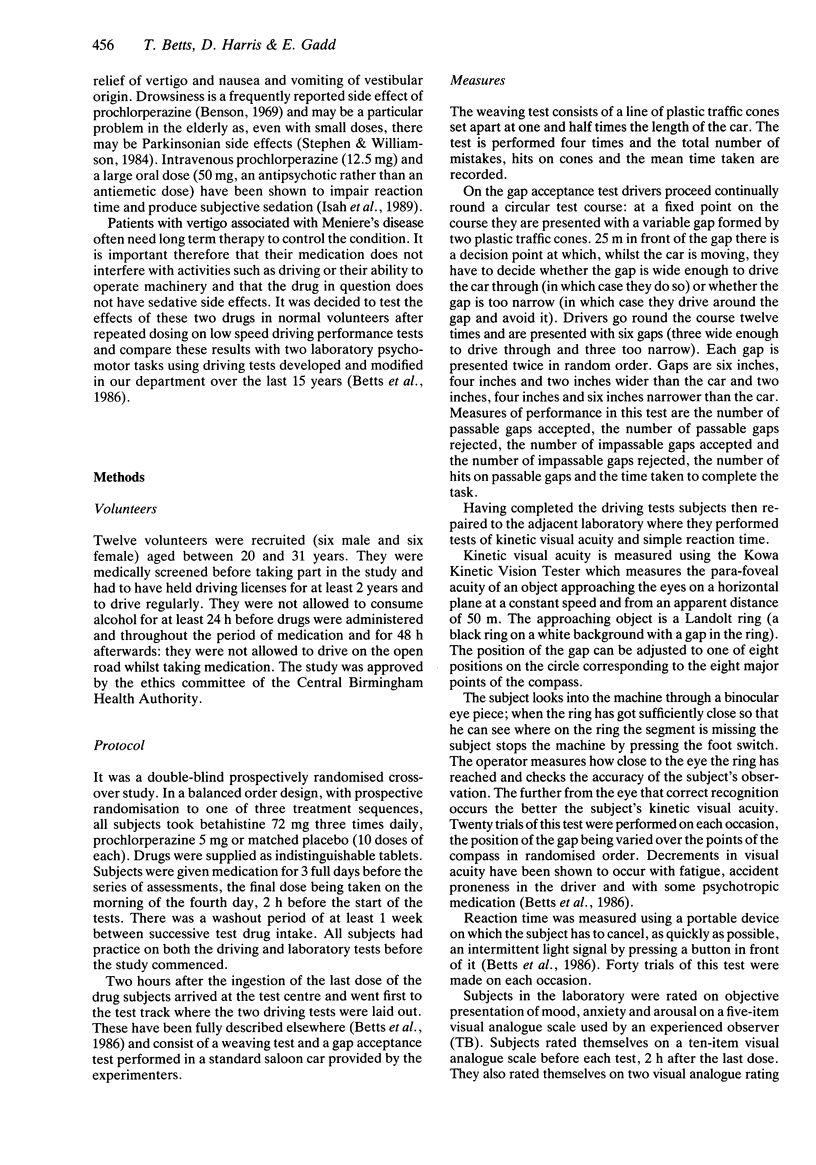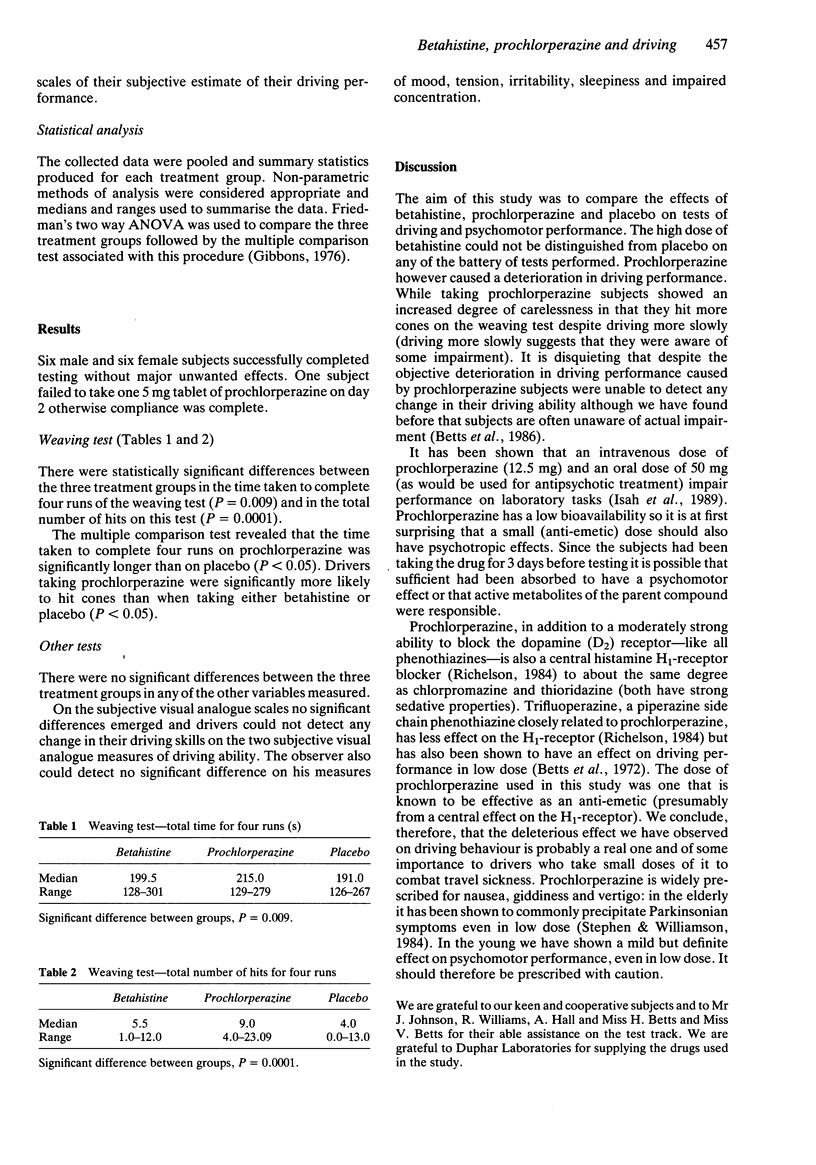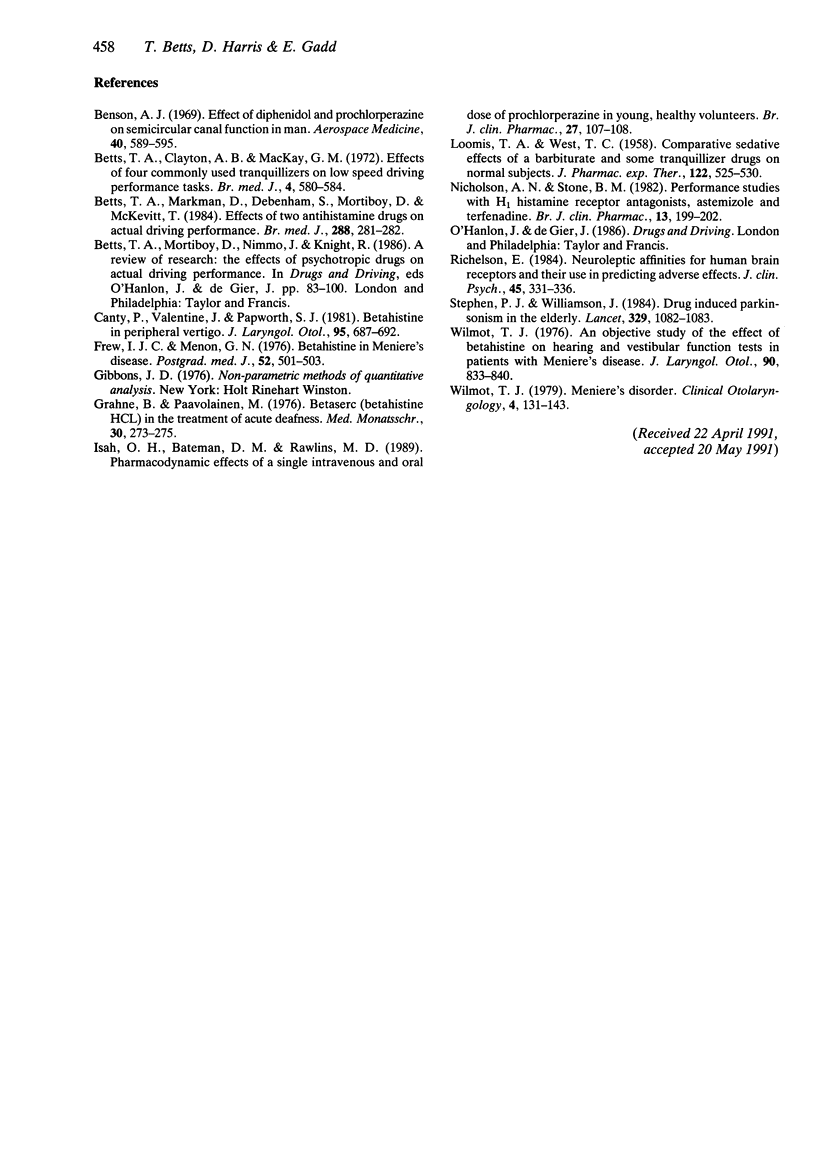Abstract
1. The effects of betahistine 72 mg three times daily, prochlorperazine 5 mg three times daily and placebo taken for 3 days before testing were compared on two actual driving tasks (weaving and gap estimation) and two psychomotor tasks (reaction time and kinetic visual acuity) in normal subjects in a double-blind prospectively randomised cross-over study. 2. The psychomotor effects of betahistine could not be distinguished from those of placebo. 3. Prochlorperazine impaired driving performance causing increased carelessness and slowing on the weaving test. 4. There was little subjective appreciation of impairment whilst taking prochlorperazine.
Full text
PDF



Selected References
These references are in PubMed. This may not be the complete list of references from this article.
- Benson A. J. Effect of diphenidol and prochlorperazine on semicircular canal function in man. Aerosp Med. 1969 Jun;40(6):589–595. [PubMed] [Google Scholar]
- Betts T. A., Clayton A. B., Mackay G. M. Effects of four commonly-used tranquillizers on low-speed driving performance tests. Br Med J. 1972 Dec 9;4(5840):580–584. doi: 10.1136/bmj.4.5840.580. [DOI] [PMC free article] [PubMed] [Google Scholar]
- Betts T., Markman D., Debenham S., Mortiboy D., McKevitt T. Effects of two antihistamine drugs on actual driving performance. Br Med J (Clin Res Ed) 1984 Jan 28;288(6413):281–282. doi: 10.1136/bmj.288.6413.281. [DOI] [PMC free article] [PubMed] [Google Scholar]
- Canty P., Valentine J. Betahistine in peripheral vertigo: a double-blind, placebo-controlled, cross-over study of Serc versus placebo. J Laryngol Otol. 1981 Jul;95(7):687–692. [PubMed] [Google Scholar]
- Frew I. J., Menon G. N. Betahistine hydrochloride in Méniére's disease. Postgrad Med J. 1976 Aug;52(610):501–503. doi: 10.1136/pgmj.52.610.501. [DOI] [PMC free article] [PubMed] [Google Scholar]
- Grahne B., Paavolainen M. Betaserc (Betahistin-HCl) in der Behandlung der akuten Taubheit. Med Monatsschr. 1976 Jun;30(6):273–275. [PubMed] [Google Scholar]
- LOOMIS T. A., WEST T. C. Comparative sedative effects of a barbiturate and some tranquilizer drugs on normal subjects. J Pharmacol Exp Ther. 1958 Apr;122(4):525–531. [PubMed] [Google Scholar]
- Nicholson A. N., Stone B. M. Performance studies with the H1-histamine receptor antagonists, astemizole and terfenadine. Br J Clin Pharmacol. 1982 Feb;13(2):199–202. doi: 10.1111/j.1365-2125.1982.tb01356.x. [DOI] [PMC free article] [PubMed] [Google Scholar]
- Richelson E. Neuroleptic affinities for human brain receptors and their use in predicting adverse effects. J Clin Psychiatry. 1984 Aug;45(8):331–336. [PubMed] [Google Scholar]
- Stephen P. J., Williamson J. Drug-induced parkinsonism in the elderly. Lancet. 1984 Nov 10;2(8411):1082–1083. doi: 10.1016/s0140-6736(84)91516-2. [DOI] [PubMed] [Google Scholar]
- Wilmot T. J., Menon G. N. Betahistine in Ménière's disease. J Laryngol Otol. 1976 Sep;90(9):833–840. doi: 10.1017/s0022215100082785. [DOI] [PubMed] [Google Scholar]
- Wilmot T. J. Ménière's disorder. Clin Otolaryngol Allied Sci. 1979 Apr;4(2):131–143. doi: 10.1111/j.1365-2273.1979.tb01875.x. [DOI] [PubMed] [Google Scholar]


